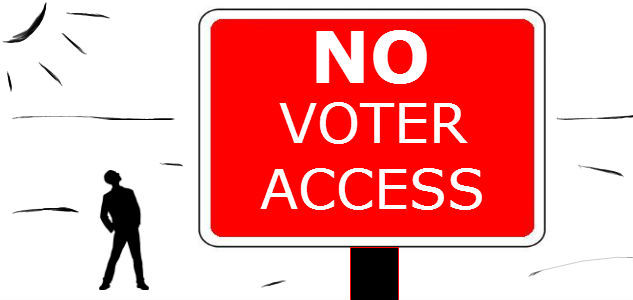
Honoring the Rights of Voters
The last day to circulate petitions is this Thursday, April 10 and we also need to file our petitions by midnight on April 10.
The summer of 2012 grows explosive as the United States Presidential election approaches. Several states around the country are providing this volatile spark as a result of their new voting laws, which can potentially reduce the number of voters at the polls this year. Although Florida persists with its headline catching drama, due to laws like HB 1355, states like Ohio, Tennessee, and Illinois are not too far behind the Sunshine State when it comes to their legal ambitions on voting privileges (Brennan Center of Justice. 2012.)
While these states work overtime to redefine voting benefits, voters’ right champions, such as Rock the Vote and the League of Women Voters, labor to inform people about their rights and the laws that may obstruct those privileges. Thanks to federal judges like Robert Hinkle, who blocked the stifling election law HB 1355, which requires voter registration groups to hand over voter registration forms to Florida election authorities within 48 hours of completion. Efforts are being made to guarantee equality for all eligible voting citizens before the November 6 date arrives.
Laws like HB 1355 only weaken voter presence, especially among minorities. This is not a new phenomenon in American political history; after the 15th amendment was passed, allowing freed black males to vote, there was staunch resistance from several states, some of which were a part of the Confederate South, to enforce the new legislation (Department of Justice/Civil Rights Division. 2012). The Voting Rights Act (VRA) of 1965 was fashioned to deter this practice of voter discrimination; however, in the 21st century, election laws, which are being created in the name of efficiency and clarity, will possibly alienate eligible balloters from the voting booths.

For example, “…Illinois and Texas passed laws restricting voter registration drives,” so if your church or community center wants to hold this type of activity and sign up eligible voters, these activists would be committing a crime in these states and would receive a fine for their actions. Similarly, “South Dakota recently passed a law imposing further restrictions on citizens with felony convictions by denying voting rights to persons on probation on top of existing requirement that any term of imprisonment or parole be completed before the state will restore their voting rights.”
Rights of Voters Challenged
Lastly, but definitely not in the least of these constricting laws, “…Tennessee and West Virginia succeeded in enacting bills reducing early voting.” This measure could lead to a significant decline of votes for the upcoming election if citizens travel aboard or are indispose on Election Day (Brennan Center for Justice. 2012). These laws, amongst others, will make voting a laborious task within voting communities.
Even though the VRA was established to keep states from crossing the boundaries of voter discrimination, only nine states are fully covered under this act. While seven states, California, South Dakota, Michigan, New Hampshire, North Carolina, New York, and Florida, only cover specific counties/ townships (Department of Justice/Civil Rights Division. 2012). The VRA has some limitations when comes to compelling states to give all eligible voters their fair chance to vote but the people of the United States are not bound by such limitations. As election laws continue to heat up the summer, citizens will endure the fight to protect their rights at the voting booths and the rights of future generations of voters to come.
Leave a Reply